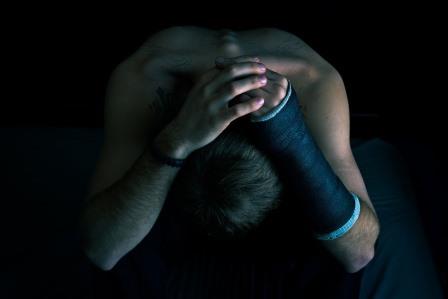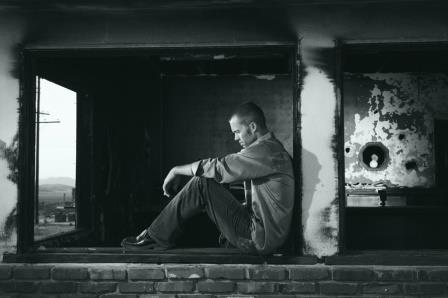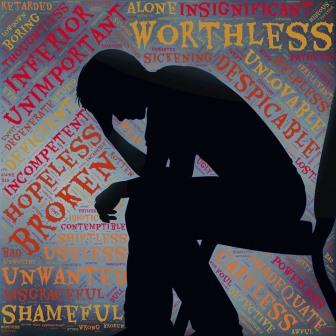Depression is a feeling of more than sadness. Many situations come in our life when we feel helpless, hopeless, and worthless.in this article you will read about what causes Depression & type of depression and How to cure depression.
What causes Depression?
Feeling down is natural sometimes, but if that low mood continues day after day, it could signal depression. It may decrease a person’s ability to function at work and at home.
Let’s admit we have felt sad or depressed at times. Feeling depressed could be due to loss, life’s struggles, or an injured self-esteem. Most cases of depression come up when people lose their loved one, ending a relationship and losing their job.
Remember depression is not an indication of weakness or a negative personality. It’s merely a major public health problem and curable medical condition.
Depression causes severe signs that affect how we feel, think, and handle daily activities, like sleeping, eating, or working. To be identified with depression, the signs must be present for not less than two weeks.

Types of Depression
Persistent depressive disorder (also called dysthymia)
PDD lasts for 2 years or longer where a person’s moods are regularly low. Common symptoms of Persistent depressive disorder include:
- Poor appetite or overeating
- Insomnia or hypersomnia
- Low energy or fatigue
- Low self-esteem
- Poor concentration or difficulty making decisions
- Feelings of hopelessness
Seasonal Affective Disorder
SAD is a mood disorder that has a seasonal pattern that begins and ends in a particular season.
People with SAD are more likely to experience a lack of energy, sleep too much, overeats, gain weight and crave for carbohydrates.
Bipolar disorder
Bipolar disorder used to be known as ‘manic depression’ because the person experiences periods of depression and periods of mania, with periods of normal mood in between.
Symptoms include feeling great, having lots of energy, having racing thoughts and little need for sleep, talking quickly, having difficulty focusing on tasks, and feeling frustrated and irritable.
Perinatal depression
Many Women experience relatively mild depressive and anxiety symptoms that typically clear within two weeks after giving birth.
Symptoms include feelings of extreme sadness, anxiety, and exhaustion that accompany perinatal depression may make it difficult for these new mothers to complete daily care activities for themselves and for their babies.
Psychotic depression
People with psychotic depression have the symptoms of major depression along with “psychotic” symptoms, such as-
- Paranoia (wrongly believing that others are trying to harm you)
- Hallucinations (seeing or hearing things that aren’t there)
- Delusions (false beliefs)
A combination of antidepressant and antipsychotic drugs can treat psychotic depression.

Methods of curing depression?
Before a diagnosis or treatment, a health professional should conduct a thorough diagnostic evaluation what causes Depression including an interview and possibly a physical examination.
Blood test might be done to make sure the depression is not due to a medical condition like a thyroid problem in many cases.
The evaluation is to identify specific symptoms, medical and family history, cultural factors and environmental factors to arrive at a diagnosis and plan a course of action.
Medication
Brain chemistry may contribute to an individual’s depression and may factor into their treatment. Antidepressants might be prescribed to help modify one’s brain chemistry.
These medications are not sedatives, “uppers” or tranquillizers. They are not habit-forming. Generally, antidepressant medications have no stimulating effect on people not experiencing depression.
Antidepressants may produce some improvement within the first week or two of use. Full benefits may not be seen for two to three months.
If a patient feels little or no improvement after several weeks, his or her psychiatrist can alter the dose of the medication or add or substitute another antidepressant.
It is important to let your doctor know if a medication does not work or if you experience side effects.
Psychiatrists usually recommend that patients continue to take medication for six or more months after symptoms have improved.
Psychotherapy
Psychotherapy, or “talk therapy” is sometimes used for a treatment of mild depression. It is often used in along with antidepressant medications.
Cognitive behavioural therapy (CBT) is a form of therapy focused on the present and problem solving. CBT helps a person to recognise distorted thinking and then change behaviours and thinking.
Depending on the severity of the depression, treatment can take a few weeks or much longer. Notable improvement can be made in 10 to 15 sessions in many cases.
Electroconvulsive Therapy
ECT is a medical treatment most commonly used for patients with severe major depression or bipolar disorder who have not responded to other treatments.
Electroconvulsive Therapy involves a brief electrical stimulation of the brain while the patient is under anaesthesia. A patient typically receives ECT two to three times a week for a total of six to 12 treatments.
Conclusion:
Depression, at some level, will hit every adult eventually.If you think you may have depression, obtain an opinion from a mental health or medical professional. That professional can then guide you in the direction of additional treatment and/or possible medication and actual reason to acquire what cause depression.
Read more Yes you are Special so why not take Care of yourself-Guidebook

1 thought on “What causes Depression and methods of curing depression?”
Comments are closed.